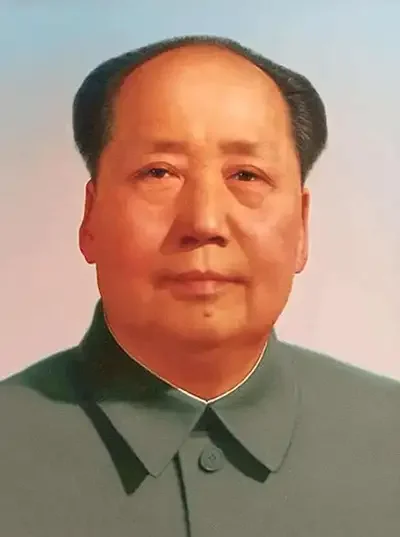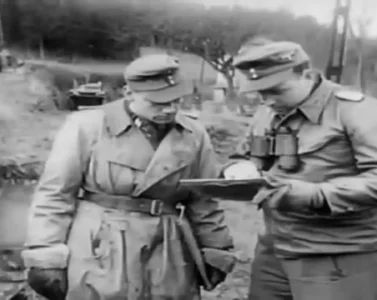- Military History
- Biographies
- Politicians Biographies
- Chairman of the Central Committee Mao Zedong
Chairman of the Central Committee Mao Zedong
Principal Chinese Marxist theorist and state leader who led his country’s communist revolution. Mao was also the leader of the Chinese Communist Party (CCP) until his death, and he was chairman (chief of state) of the People’s Republic of China
Mao Zedong, the founding father of the People’s Republic of China and leader of the Chinese Communist Party, was born on December 26, 1893 in Shaoshan, Hunan Province, China into a wealthy farmer’s family. His truly drastic policies decisively shaped China during the twentieth century.
During Mao's youth and adolescence, China had thrown off the rule of the Manchu (Ch'ing) Dynasty and created a republic. While in his early life he adopted a nationalist and anti-imperialist outlook influenced by the events of the Xinhai Revolution of 1911 and the May Fourth Movement of 1919, later Mao turned to Marxism–Leninism when working at Peking University and joined the Chinese Marxist Party in 1920. A year later, he and 11 others founded the Chinese Communist Party (CPC).
For several years, Mao and his followers cooperated with the Chinese Nationalists, led by General Chiang Kai-shek. In 1927, he led the Autumn Harvest Uprising. Mao quickly became a military leader out of necessity. During the Chinese Civil War (1927 - 1936 and 1946 - 1950), between the Kuomintang (KMT) led government of the Republic of China and the Communist Party of China (CPC) Mao focused on rural China and the common peasants as the bulwark of the Communist Party.
In 1928 Mao commanded just more or less 10,000 men, but by the early 1930s, that figure had risen to nearly 300,000. Mao and his followers, however, were under constant attack from Chiang's Nationalist forces. Mao's response was to start and lead the "Long March".
Beginning on October 16, 1934, Mao led 86,000 Chinese communists on a daring, apparently suicidal, retreat from the Jin Giang Mountains north through the Hunan, Kweichow, and Szechwan provinces. The communists crossed eighteen mountain ranges (six of them snow-covered) twenty-four rivers and vast swamps on their march north. They also eluded Chiang's forces. It is believed that only 4,000 of the original 86,000 troops reached their destination in northern Shensai province in October 1935. The march, however, brought national and international attention to the communists, and their numbers were soon swollen by recruits. The epic journey also made Mao Zedong the indelible leader of Chinese communism and the head of the CPC.
During the Second Sino-Japanese War (1937-1945) Mao stayed on the sidelines. He perceived Chiang and the Nationalists as his true enemy. After World War II and Japan’s surrender, China’s civil war resumed. Chiang and the Nationalists held on to the cities, while Mao and the communists gained control of the entire countryside. In 1949, Mao's forces defeated the Nationalists who withdrew to Taiwan. Mao marched into Peking as the leader of a new communist nation. He proclaimed the foundation of the People's Republic of China (PRC), a single-party state controlled by the CPC.
Mao led China through the Cold War. He signed a treaty with the Soviet Union in 1950 and sent his troops across the Yalu River into the Korean War later that year.
In 1957, he launched a campaign known as the “Great Leap Forward” that aimed at rapidly transforming China's economy from an agrarian economy to an industrial one, but resulted in one of the deadliest famines in history.
In 1966, he started the Great Proletarian Cultural Revolution, a program to remove counter-revolutionary elements of Chinese society, which was marked by a violent class struggle, widespread destruction of cultural artifacts and unprecedented rise of Mao's personality cult.
By 1971, Mao slowly reversed his old policies, signaling a policy of opening China to the world, which was furthered by welcoming US President Richard Nixon in China a year later.
After several heart attacks, Mao Zedong died aged 82 on September 9, 1976. Being the most revered leader in the communist world at that time, he, even though being a controversial figure, is one of the most important leaders of modern world history and known for being a great military strategist and visionary that modernized China building it into a world power.
Chairman of the Central Committee Mao Zedong - Quick Facts
- Chinese Civil War (1927-36 & 1946-50)
- Cold War (1947-1991)
- Korean War (1950-1953)
- {{#owner}}
- {{#url}} {{#avatarSrc}}
{{name}} {{/url}} {{^url}} {{#avatar}} {{& avatar}} {{/avatar}} {{name}} {{/url}} - {{/owner}} {{#created}}
- {{created}} {{/created}}
























